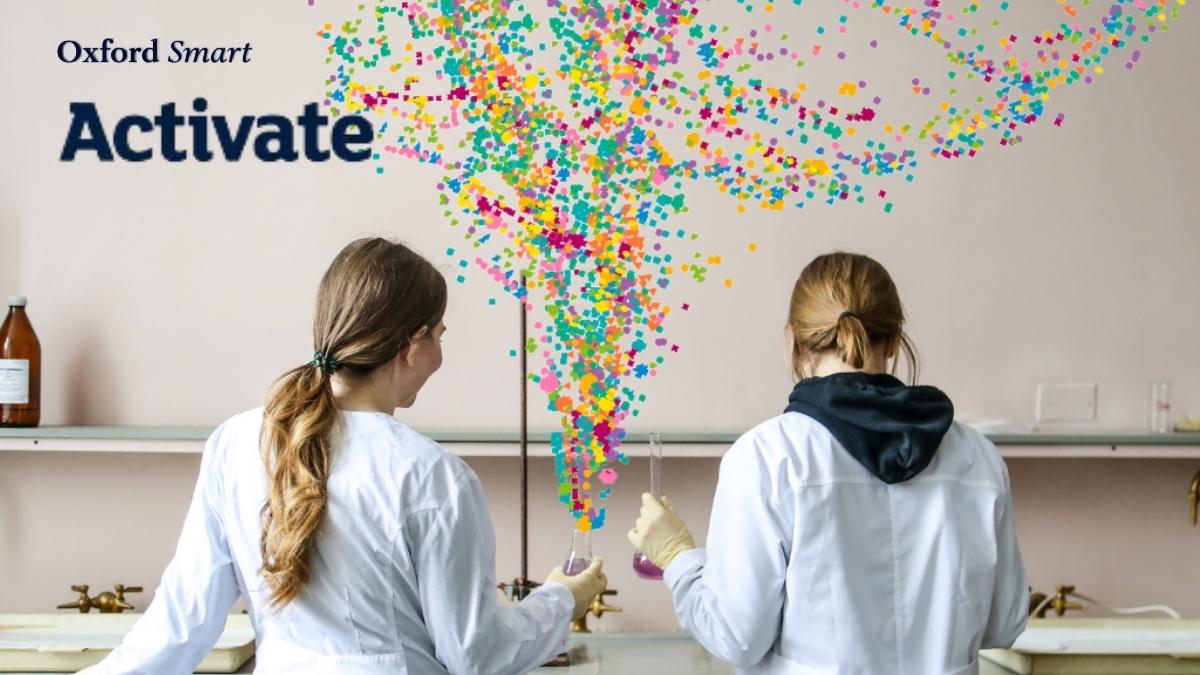As every learner is unique, so is every science teacher. Each with their own specialisms and areas of interest, there are always going to be parts of the science curriculum in which science teachers are more-confident and others in which they need more guidance. Adding to that, teacher recruitment and retention being an increasing concern within science departments, [Schoolsweek recently reporting that 27.5% of Physics hours were taught by non-specialists in 2022/2023.*], schools are looking for teaching support that is effective and sustainable.
The power of awe and wonder: introducing the new Oxford Smart Curriculum, Oxford University Press, 2021 states “Our ultimate intention is for this curriculum to nurture links between school, home, and the wider community. For teachers, access to targeted resources and professional development can enhance their teaching practice, while giving them the space to focus on their wellbeing.”
In this blog, Pioneer Schools explain the ways in which Oxford Smart Activate has had an impact on their teaching.
CPD and research available when it’s needed
Gaynor Clipsham, Benjamin Britten Music Academy
“We had a PE teacher in our team who was new to teaching Science. He was very strong in Biology, but less confident in teaching Chemistry and Physics. The resources that were available and things he could read and find out about really built his confidence…when we were talking about retrieval practice, he could go to the Research area on Kerboodle and read about retrieval practice and metacognition…To have that kind of research and those support resources is amazing.”
Aneesa, Kingsley Academy
“We’ve got quite a few new science teachers who are learning the curriculum themselves, so it’s really helped them to get a better insight to the lessons. The Teacher Handbook has been really good to help them find their feet.”
Mauvine Charles, Alec Reed Academy
“Departmental meetings are now focused on teaching and learning – asking, ‘What do you think?’ and ‘How did that go?’ They give us the opportunity to delve in and look at research and training programmes, and decide which one we want to focus on that week. It’s made us a very vibrant department.”
Lynda Charlesworth, Camden School for Girls
“We spend a lot of time in our department looking at the best evidence based practice and sharing it with each other. And the little videos on CPD that they have [on Kerboodle] that is matched to the research really suits our department and it also suits the time that they have because they’re quite short and they can access them quite easily.”
The CPD and research area on Kerboodle has links to all of the research that informed the curriculum development and a bank of CPD resources focusing on areas that have the most impact on teachers.
New ways to teach key concepts
Whether you’ve been teaching for years, are an NCT, EQT or new to teaching science, discovering a new way to demonstrate a concept is always exciting. Science is all about investigation, curiosity and discovery after all! A number of Pioneers Schools commented on how Oxford Smart Activate introduced them to different practicals and helped them to provide contexts to concepts that related directly to their students.
Science Teacher, The Oratory School
“The tea-bag diffusion practical was fantastic – it was so visual. And I like the way the questions from the practicals come up in a similar way in the tests, so there is a clear link between how you are explaining things that is reiterated in the tests.”
Becky Snelgrove, Endon High School.
“We’ve had lots of fantastic discussions with the kids, really in-depth debates, about how science actually links to their every day lives and how what we’re learning in the classroom impacts them every single day.”
Martin Saunders, Chichester High School.
“We all have our own way of doing things, and it was interesting to see some of our PGCSE students put their own spin on the lessons and resources. It’s forced me to really evaluate my own practice and step-up my game as well as benefitting the students around me…to make the difference that I signed up for when I started teaching.”
Finding and resourcing opportunities that spark a love of science should not place additional strain on science teachers and departments. With awe and wonder and high aspirations at the core of the Oxford Smart Activate curriculum, science departments have everything they need for learners and teachers to flourish.
*https://schoolsweek.co.uk/extent-of-classes-taught-by-non-specialist-teachers-revealed/
Read more from the Pioneer Schools on the Oxford Smart Activate hub
You may also be interested in:
Curriculum narratives in Science: What’s the story? Dr Andrew Chandler-Grevatt
Metacognitive modelling – where does it fit in the classroom? Nathan Burns
